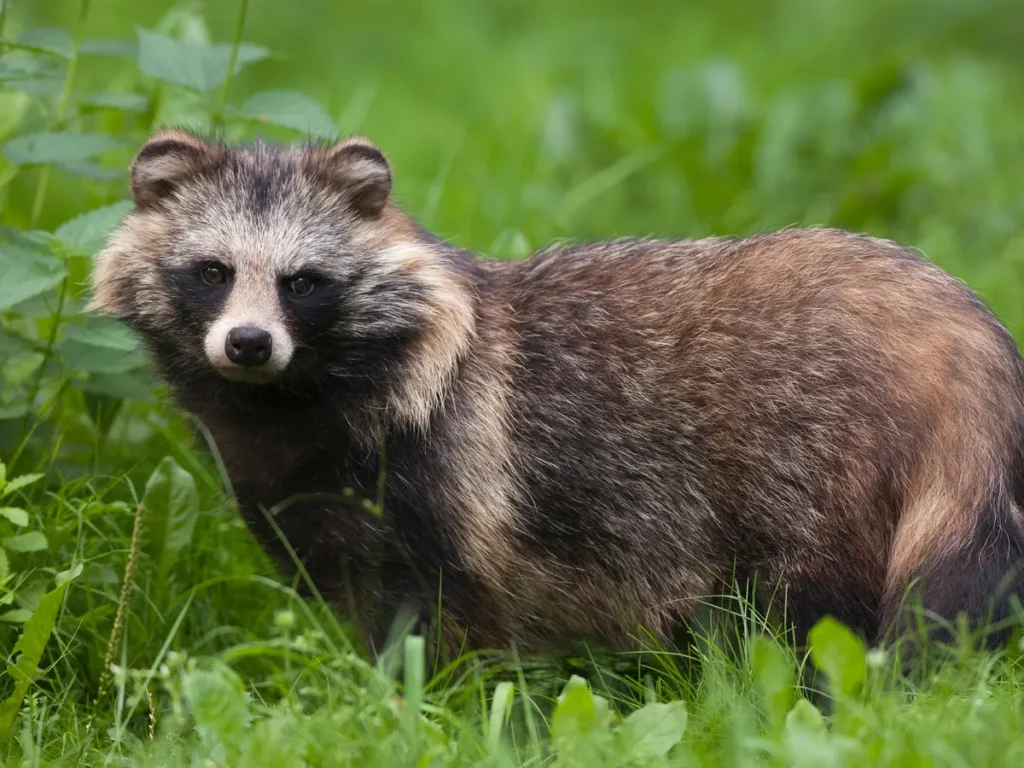Raccoon dogs are not related to northwestern Raccoon. Raccoon dogs are native to East Asia. Especially parts of Russia, Japan and China. Raccoon dogs have spread to Europe and are seen across the continent. Raccoon dogs are social animals.
Are you a spelling bee champ? Here’s a fun word for you to practice, Nyctereutes procyonoides. It is the scientific name of a raccoon dog. In Greek, it roughly translates to night wanderer.
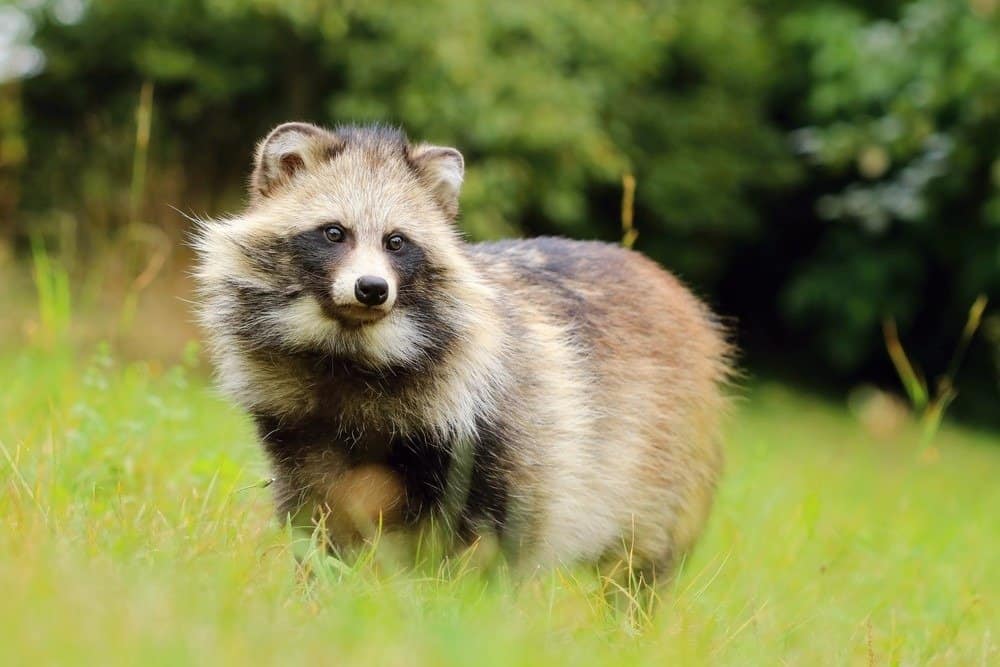
Raccoon dogs have five subspecies. They are:
- N. procyonoides procyonoides: Native to China and Indo China.
- N. procyonoides orestes: This raccoon dog species is native to southwestern China.
- N. procyonoides koreensis: Any guesses? This subspecies lives in the Korean peninsula.
- N. procyonoides viverrinus: Home to Tanukis. These subspecies live in Japan, except Hokkaido.
- N. procyonoides albus: These raccoon dogs are native to Hokkaido.
Raccoon dogs can live up to 8 years. In captivity, their lifespan increases by 4 years. Raccoon dogs have a bushy tail that is about 10 inches long. Raccoon dogs weigh anywhere between 9 to 21 pounds. Raccoon dogs are famous for their fur. Their coat has several colors. From, gray to a yellow-tinged coat. You know those facial masks, that have become popular lately? Raccoon dogs have their very own facial masks! It is black and is prominent under their eyes.
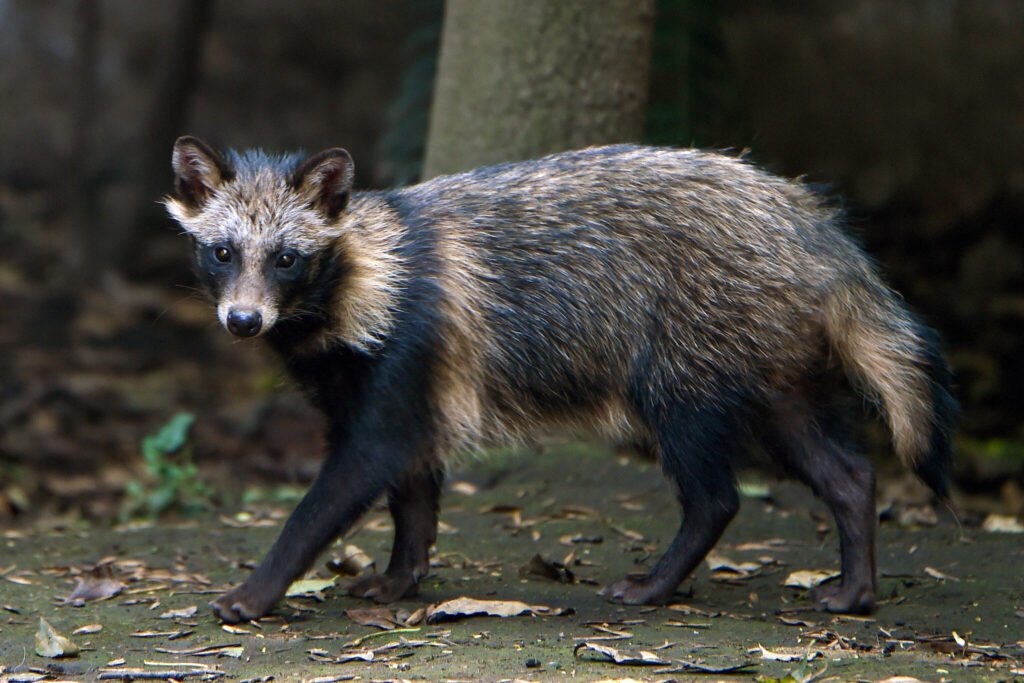
Raccoon dog pet:
Raccoon dogs are wild animals. Raccoon dogs cannot be housed in a cage indoors. They are notorious kleptomaniacs. Raccoon dogs communicate via their scents and whines. This could make your house, smelly and noisy. Raccoon dogs are social animals, adopting only one will make them lonely.
Raccoon dogs can be unpredictable and shy. They cannot be petted like a normal dog. Raccoon dogs have very sharp claws. A raccoon dog is like Columbus in a raccoon dog suit. They are curious animals. Raccoon dogs are also illegal to own and sell in several countries, including the UK.
Taking care of a raccoon dog also requires a vet who specializes in exotic animals. These furry animals are best viewed in zoos. Though, raccoon dogs have not been listed in the IUCN. The exact number of species today is unknown. Habitat loss, hunting, deforestation, and global warming are a threat to the species.
Raccoon dog habitat:
Raccoon dogs stay close to water bodies. A raccoon dog lives near the shores of lakes and rivers. Raccoon dogs prefer moist land. Many raccoons dogs live in dense forests and farmlands. In urban areas, raccoon dogs inhabit the land with very little forest cover. Raccoon dogs prefer open landscapes. Raccoon dogs in Finland prefer barren pine forests. Raccoon dogs settle in places where there is abundant food.
Read more on exotic pets here
Raccoon dog diet:
Raccoon dogs are omnivores. They feed on fruits, frogs, insects, fishes, and lizards. Raccoon dogs also climb trees in search of nuts and berries. Sometimes, a raccoon dog can eat toxic toad species. Raccoon dogs use their paws to fish their prey out of the water. They do not need fishing hooks and exotic baits. Raccoon dogs can also dive underwater to catch their prey. During winter, when food supply is low, raccoon dogs forage in garbage cans. The habitat of a raccoon dog changes with the season. Raccoon dogs are capable of encroaching upon human habitat in search of food. In autumn, their diet is dependent on berries and fruits
Raccoon dog facts:
- Raccoon dogs have very poor vision. They rely on their sense of smell the most.
- It is important to wash your fruits and vegetables before consumption. Even raccoon dogs wash their food occasionally.
- Did you know, that raccoon dog’s fur is sold commercially in Russia. In the 21st century, there are fur farms that produce fur.
- Wolves, domestic dogs, sea eagles, and humans are predators of raccoon dogs. Raccoon dogs are hunted for their fur and the production of calligraphy brushes.
- Raccoon dogs are not related to dogs, nor raccoons. Raccoon dogs are part of the Canidae family. Their relatives include wolves, coyotes, foxes, etc.
- In Japan, raccoon dogs are known as Tanuki. Tanuki toys and collectibles are common at supermarkets. There is even a famous Japanese movies based on this exotic animal. It is a studio Ghibli movie called Pom Poko.
- Sweden, on the other hand, is set to drive out the species from the country. They believe the raccoon dogs are a threat to the amphibian species. Also due to their high reproduction rate, the numbers are not decreasing.
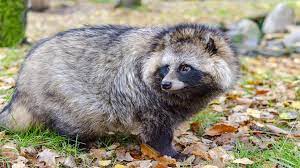
- Raccoon dogs have dexterous paws in the front. It is a feature that helps them catch their prey underwater, and climb trees.
- Raccoon dog pups born in the summer, are blind when born. Both the raccoon dogs take care of their pup until it is old enough to hunt on its own.
- Raccoon dogs are monogamous pairs. They take their roles as parents seriously. Raccoon dogs are also devoted to their nuclear families.
- Japan has many folklores on Tanuki. Legend has it, that the tanukis are shape-shifting creatures called Bake-danuki. It translates to a monster raccoon dog. Today, bake-danuki is a symbol of economic prosperity.
- The gestation period for a raccoon dog is less than 12 weeks. Spring is their mating season. The litter size of raccoon dogs is 5 to 12 pups.
- Unlike their cousins, raccoon dogs hibernate in the winter months. They stock up on their fat as winter nears. Raccoon dogs find cozy burrows, decrease their metabolism by 25% and rest as the winter passes by.
- If you’re curious about animals who survived the ice age, I can help a tad bit. Raccoon dogs survived the ice age! Researchers from South Korea suggest that raccoon dogs survived the ice age. Raccoon dogs did this by roaming around Japan and in the Korean peninsula.
- Even though their name has a dog in it, raccoon dogs do not bark. These furry animals, growl when they are angry. Raccoon dogs whine the rest of the time, either when they are happy or being submissive.
Some frequently asked questions about raccoon dogs
Q: Are raccoon dogs related to raccoons? A: Despite the name, raccoon dogs are not closely related to raccoons. They belong to the Canidae family and are more closely related to foxes and wolves.
Q: Where do raccoon dogs live in the wild? A: Raccoon dogs are native to East Asia and can be found in countries like China, Japan, and Korea. They typically inhabit forests, woodlands, and grasslands.
Q: Can raccoon dogs be kept as pets? A: While raccoon dogs may look cute, they are not suitable as pets. In many places, it is illegal to own them as they have specific needs and behaviors that are challenging to meet in a domestic setting.
Q: What do raccoon dogs eat? A: Raccoon dogs are omnivorous and have a varied diet. They consume a combination of plants, fruits, insects, small mammals, and birds.
Q: Are raccoon dogs dangerous? A: Raccoon dogs are generally not aggressive towards humans but may bite or defend themselves if they feel threatened. It is important to avoid approaching or provoking them in the wild.
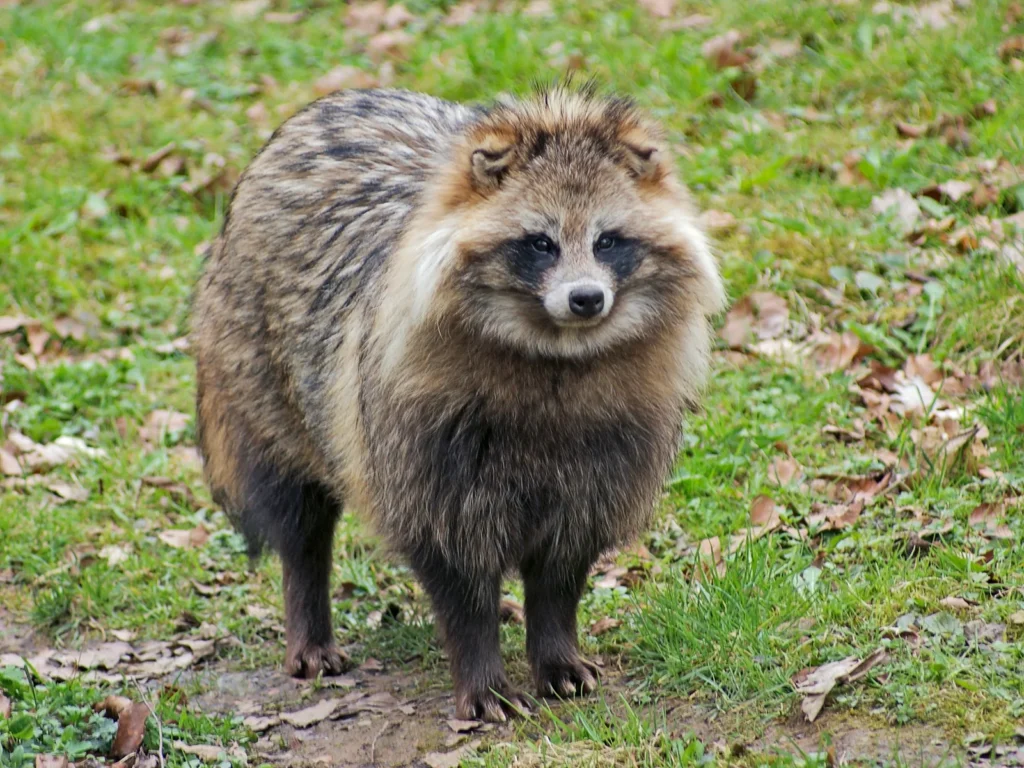
Q: Are raccoon dogs endangered? A: Raccoon dogs are not currently classified as endangered. However, habitat loss and hunting for fur have posed threats to their populations in some regions.
Q: Can raccoon dogs be found outside of their native range? A: Raccoon dogs have been introduced to parts of Europe, including Finland and Estonia. These populations are considered invasive and can impact local ecosystems.
Q: Do raccoon dogs hibernate? A: Raccoon dogs do not hibernate. They remain active throughout the year, adapting to the changing seasons by growing thicker fur during winter.
Q: How long do raccoon dogs live? A: In the wild, raccoon dogs typically live for about 4-5 years. In captivity, they may have a slightly longer lifespan, reaching up to 10 years.
Q: Are raccoon dogs social animals? A: Raccoon dogs are generally solitary animals, although they may form small family groups during the breeding season. They are not highly social like some other canid species.
In conclusion, raccoon dogs are fascinating creatures with unique behaviors and adaptations.
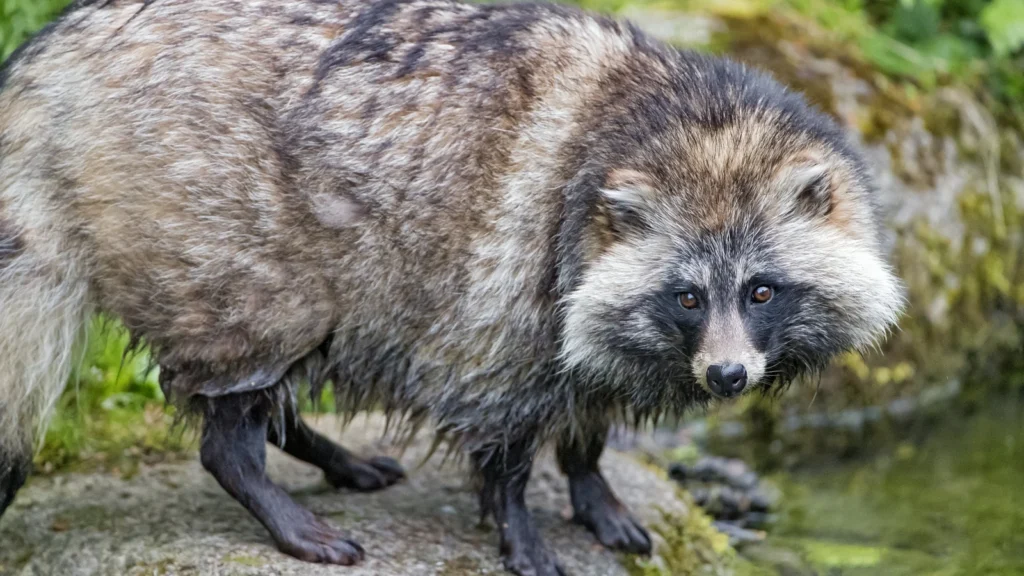
By understanding their habitat, diet, and conservation status, we can appreciate and protect these elusive animals. Whether you encounter them in the wild or simply admire them from afar, raccoon dogs serve as a reminder of the diverse and wonderful wildlife that inhabits our world.

